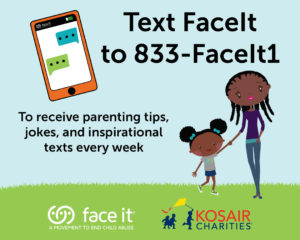Report It
Kentucky
All Kentuckians are mandated reporters. If you believe a child is being abused or neglected, call the Child Protection Hotline.
1-877-KYSAFE1 or 1-877-597-2331
For contact information in other states, please visit our Report It page.
Additional Support:
Child help: National Abuse Hotline:
1-800-4-CHILD
or 1-800-422-4453










